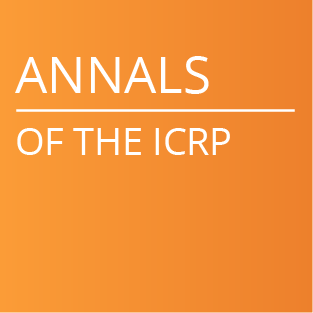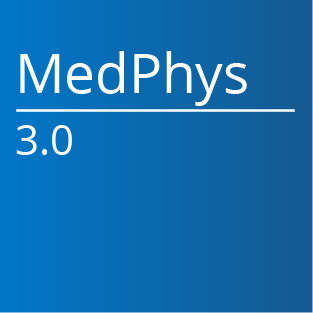| Policy number | Policy name | Policy date | Sunset date | |||||||||||||||||||||||||||||||||||||||||||||
|---|---|---|---|---|---|---|---|---|---|---|---|---|---|---|---|---|---|---|---|---|---|---|---|---|---|---|---|---|---|---|---|---|---|---|---|---|---|---|---|---|---|---|---|---|---|---|---|---|
| AP 109-A | Operating Reserves Investment Fund – Excess Budget, Increased Equity Portfolio (For Funds in Excess of Annual Budget Needs) | 4/2/2019 | 12/31/2024 | |||||||||||||||||||||||||||||||||||||||||||||
Section |
||||||||||||||||||||||||||||||||||||||||||||||||
| Policy source | ||||||||||||||||||||||||||||||||||||||||||||||||
| April 2-3, 2019 Board of Directors Meeting Minutes | ||||||||||||||||||||||||||||||||||||||||||||||||
| Policy text | ||||||||||||||||||||||||||||||||||||||||||||||||
|
EXECUTIVE SUMMARY American Association of Physicists in MedicineFund Name: Operating Reserves Investment Fund Fund Type: Exempt Operating Foundation Date Established: November 10, 1989 Federal Tax ID#: 23-7057224 Investment Time Horizon: 10 to 20 years Risk Tolerance: Moderately Aggressive Risk & Return Consistent with Portfolio Benchmark PURPOSE This document establishes the Investment Policy Statement for American Association of Physicists in Medicine (AAPM) and is designed to assist in effectively supervising, monitoring and evaluating the investment performance of the AAPM Operating Reserves Investment Fund's (Fund) investment assets. Cash and cash equivalents held for operating purposes is not considered part of the investment fund. A thorough investment program is defined throughout this document to achieve the following:
The Board of Directors of the AAPM maintains responsibility for approving this Investment Policy Statement and for any changes made to the Statement. The Board of Directors maintains the ultimate oversight of the Fund but does grant the AAPM Investment Advisory Committee the authority to maintain the Fund's operations, including the approval of transactions. The Board of Directors of the AAPM, with the assistance of the AAPM Investment Advisory Committee, has arrived at this Investment Policy through careful study of the returns and risks associated with alternative investment strategies in relation to the current and projected spending policies and fund raising requirements of the Fund. This policy has been chosen as the most appropriate policy for achieving the objectives of the Fund, which are described in the Objectives section of this document. STATEMENT OF INVESTMENT OBJECTIVES The Fund is established to manage assets held in reserve to assure that the commitments of AAPM will be honored. Those commitments include:
The investment objectives of the Fund shall be defined as:
SPENDING POLICY The Board of Directors will approve, at their discretion, expenditure of assets from the Fund. It shall be the Board's responsibility to periodically review the spending policy to make adjustments necessary to preserve the purchasing power of the Fund. Further, it shall be the responsibility of the Investment Advisory Committee to promptly communicate any changes in the spending policy to the Investment Advisor. DUTIES AND RESPONSIBILITIES The AAPM Board of Directors grants authority to the AAPM Investment Advisory Committee to maintain the operation of the Fund. Specifically, the Investment Advisory Committee is responsible for managing the investment process in a prudent manner with regard to preserving principal while providing reasonable returns. In carrying out these duties, the AAPM Investment Advisory Committee may retain an Investment Adviser to assist in managing the assets of the Fund. The Investment Adviser's role is to provide guidance to the Board on matters pertaining to the investment of Fund assets including investment policy, investment selection, monitoring Fund performance and compliance with the Investment Policy. All decisions pertaining to the implementation of the Board approved investment policy and guidelines for the Fund shall be made by AAPM Investment Advisory Committee. Individual duties and responsibilities are detailed below. The Board of Directors of the American Association of Physicists in Medicine is responsible for managing the investment process in a prudent manner with regard to preserving principal while providing reasonable returns. In carrying out these duties the Board has delegated various duties to AAPM committees. These duties include:
Individual duties and responsibilities are further detailed below. Investment Advisory Committee
Investment Advisor
INVESTMENT POLICY AND GUIDELINES Fund assets will be held in an investment portfolio with an active strategic asset allocation strategy. This portfolio will be invested exclusively in mutual funds and/or similarly structured pooled funds (pooled investment vehicles) including exchange traded funds. As a result, assets held in this portfolio will be well diversified and highly liquid. The Investment Adviser for each pooled investment vehicle is responsible for managing the assets of each fund in accordance with the stated objectives and policies of that fund as set forth in each vehicle's prospectus and/or statement of investment policy. Time Horizon Fund objectives are based on a 10-20 year investment horizon, so that interim fluctuations should be viewed with the appropriate perspective. The American Association of Physicists in Medicine has adopted this investment horizon such that the chances and duration of investment losses are carefully weighed against the potential for appreciation of assets. Diversification Investments shall be diversified with the intent to minimize the risk of large losses to the Fund. Consequently, the total portfolio will be constructed and maintained to provide prudent diversification with regard to the concentration of holdings in individual issues, corporations, or industries. Diversification occurs at several levels. The AAPM Board of Directors realizes a significant portion of the pooled investment vehicles comprising the Fund is allocated to U.S. equity securities, including allocations to both large and small cap equities. An allocation to developed international equities provides greater diversification, which over the longer term is expected to generate higher returns with lower volatility. Pooled investment vehicles comprising the fixed income portion of the Fund are allocated to bonds, including high quality U.S. and non-U.S. issues. Financial research has demonstrated that price volatility can be further reduced by lengthening the investment time horizon. The Fund's investments are managed in accordance with the diversification and industry concentration restrictions set forth in the Investment Company Act of 1940, as amended (the "1940 Act"). Pursuant to the provisions of the 1940 Act, diversified mutual funds may not, with respect to 75% of their assets, (i) purchase securities of any issuer (except securities issued or guaranteed by the United States Government, its agencies or instrumentalities) if, as a result, more than 5% of its total assets would be invested in the securities of such issuer; or (ii) acquire more than 10% of the outstanding voting securities of any one issuer. Certain mutual funds in which the Fund may be invested are considered non-diversified for 1940 Act purposes. These non-diversified funds are not required to follow this procedure. In addition, no mutual fund may purchase any securities which would cause more than 25% of its total assets to be invested in the securities of one or more issuers conducting their principal business activities in the same industry, provided that this limitation does not apply to investments in securities issued or guaranteed by the United States Government, its agencies or instrumentalities. Asset Allocation Academic research indicates that the decision how to allocate total account assets among various asset classes will far outweigh security selection and other decisions that impact portfolio performance variability. An asset allocation strategy should include strategic (long-term) target levels, as well as allocation ranges to allow for tactical adjustments. The strategic target levels and allocation ranges should be determined by the Board of Directors based upon recommendations from the Investment Advisory Committee and the Investment Advisory. The strategic (long-term) asset allocation strategy of the Fund is to maximize total return within acceptable risk parameters. The strategic asset allocation targets and the accompanying tolerance ranges are set by the AAPM Board of Directors. The Board believes that to achieve the greatest likelihood of meeting fund objectives and the best balance between risk and return for optimal diversification, the Fund should allocate assets in accordance with the ranges and targets stated in Appendix A. The Investment Advisory Committee is charged with applying the strategic ranges and targets to the various sub-asset classes utilized by the Fund. The sub asset classes to be invested in by the Fund, and the allocations to those sub asset classes will be determined by the Investment Advisory Committee using the Guidelines for Portfolio Holdings detailed in this Statement. The sub-asset class allocation ranges and targets are found in Appendix A of this Statement. The allocation of assets between equity and fixed income/cash may deviate from the strategic target within the permitted range when market conditions warrant. Any such deviations are designed primarily to reduce overall investment risk in the long term. Risk TolerancesThe AAPM Board of Directors recognizes that the objectives of the Portfolio cannot be achieved without incurring a certain amount of principal volatility. The Portfolio will be managed in a manner that seeks to minimize principal fluctuations over the established time horizon and that is consistent with the Portfolio's stated objectives. Performance ExpectationsOver the long-term, the investment objectives for this portfolio shall be to seek an average annual real rate of return of 5% or total return of CPI plus 5% for the aggregate investments under this Investment Policy Statement. Returns may vary significantly from this target year to year. Returns may vary significantly from this target from one reporting period to another. The criteria used for investment manager or mutual fund retention includes, among other factors, performance consistency relative to the manager's or mutual fund's specific benchmark over 1,3 and 5 year periods and performance relative to the manager's or mutual fund's investment peer group. Managers and mutual funds are expected to remain above median relative to their peer group and meet or exceed their respective style benchmarks upon review. GUIDELINES FOR PORTFOLIO HOLDINGSThe Investment Adviser assists the Investment Advisory Committee in implementing this investment policy through investments in mutual funds and other pooled asset portfolios. Such investments are acceptable investments provided they conform to the diversification restrictions set forth below. Domestic EquityThe Domestic Equity asset class may be comprised of mutual funds and other pooled asset portfolios that are invested principally in equity securities of U.S. companies. These securities may be listed on registered exchanges, or actively traded in the over-the-counter market, or considered to be restricted securities (provided that the percentage of the fund's assets invested in such securities conform to the Fund's prospectus). International EquityNon-U.S. Equity asset class may be comprised of mutual funds and other pooled asset portfolios that are invested principally in equity securities (common stocks, securities that are convertible into common stocks, preferred stocks, warrants and rights to subscribe to common stocks) of non-US issuers purchased in foreign markets, on U.S. or foreign registered exchanges, or the over-the-counter markets. U.S. Fixed IncomeThe Domestic Fixed Income asset class may be comprised of mutual funds and other pooled asset portfolios that are invested principally in fixed income securities that are rated investment grade or better, i.e., rated in one of the four highest rating categories by a Nationally Recognized Statistical Rating Organization at the time of purchase, or if not rated, are determined to be of comparable quality by the Investment Advisor or a mutual fund sub-Advisor. International Fixed IncomeThe non-U.S. fixed income asset class may be comprised of mutual funds and other pooled asset portfolios that are invested principally in investment grade fixed income securities (or securities deemed of comparable quality by the Fund's Advisor) of issuers located in other than the United States. Cash Equivalent ReservesCash equivalent reserves shall consist of money market mutual funds that comply with Rule 2a-7 under the 1940 Act. CONTROL PROCEDURESReview of Liabilities Investment performance will be reviewed annually by the Investment Advisor to determine the continued feasibility of achieving the investment objectives and the appropriateness of the investment policy for achieving these objectives. In addition, the validity of the stated objective will be reviewed annually. It is not expected that the investment policy will change frequently. In particular, short-term changes in the financial markets should not require an adjustment in the investment policy. Review of Investment Adviser The Investment Adviser will report on a quarterly basis the total Fund investment performance. In addition, the Investment Adviser will be responsible for keeping the AAPM Investment Advisory Committee advised of the impact of any material change to spending policy, investment strategy, or other pertinent information potentially affecting performance of all investments. Review of Investment Performance
Appendix A
Sub-Asset Class Allocation Ranges and Targets
|
||||||||||||||||||||||||||||||||||||||||||||||||
| Policy version history | ||||
| Policy number | Policy name | Policy date | Sunset date | Active? |
|---|---|---|---|---|
| AP 109-A | Operating Reserves Investment Fund – Excess Budget, Increased Equity Portfolio (For Funds in Excess of Annual Budget Needs) | 4/2/2019 | 12/31/2024 | Active |



















